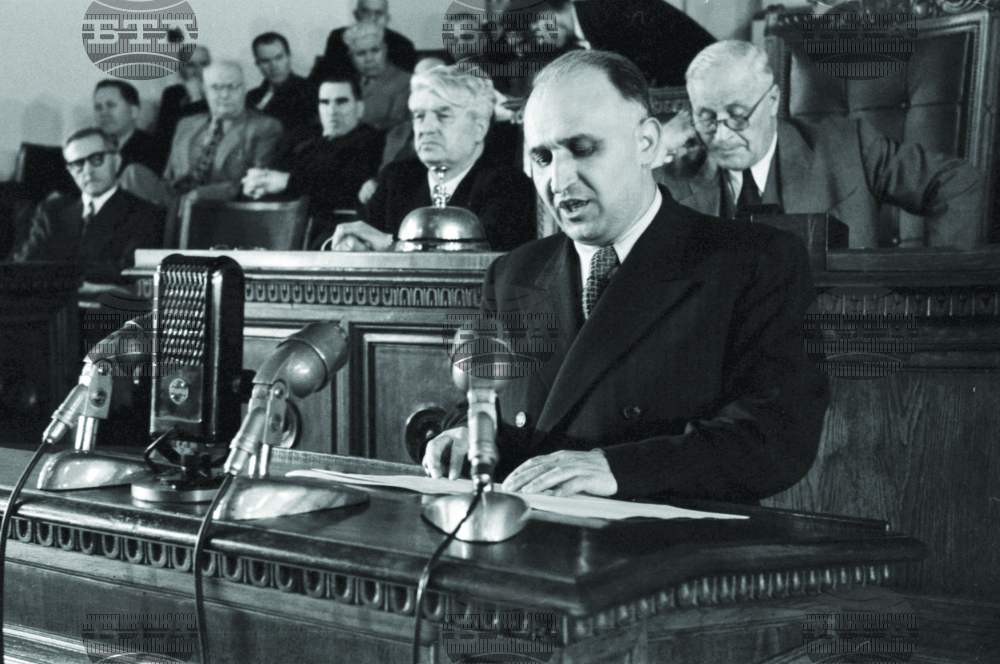site.btaApril 2, 1956: Bulgarian Communist Party Opens April Plenum, Zhivkov Begins Long Tenure as Communist Leader


On April 2, 1956, the Bulgarian Communist Party Central Committee opened its April Plenum in Sofia. It was an event which marked a significant shift in the leadership of the country. Todor Zhivkov was officially named First Secretary of the Central Committee, starting a long tenure in power. He remained at the helm of the Bulgarian communist regime until he was ousted in 1989 when Bulgaria ended a 45-year period of totalitarian rule and started a long transition to democracy and a free market economy.
It was part of a wider picture that was ushered in February 1956 with a famous de-Stalinization speech by Soviet Union leader Nikita Khrushchev, which criticized Joseph Stalin’s methods and set the stage for similar movements in Eastern Europe.
The April Plenum played a key role in this regard in People's Republic of Bulgaria. Valko Chervenkov was forced to step down from his role as Prime Minister partly due to his association with the Stalinist personality cult. His place was filled by Anton Yugov, who was seen as a more moderate figure, and his appointment represented a shift away from Chervenkov’s more rigid, Stalinist policies.
Todor Zhivkov’s rise to power was particularly significant as he would later become the longest-serving communist leader in Bulgaria and one of the longest in the Eastern Bloc. The 1956 Plenum marked an important event in his career, as it was his opportunity to guide the party through the ideological shifts that were happening within the Soviet bloc under Khrushchev's leadership. He aimed to distance the country from the excesses of Stalin's rule but also sought to ensure that Bulgaria remained firmly within the Soviet sphere of influence.
/NF/
news.modal.header
news.modal.text